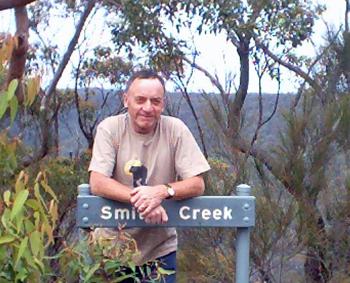The wit and wisdom of George Smith — Why shame the punters when you can threaten them?
In this new entry in our series by the great writer, George Smith tackles the ‘aggressive’ tactics used by direct marketers and, perhaps tongue-in-cheek, concludes that, ‘When you’re as boring as we are most of the time, the merest sign of life is likely to be welcomed beyond its means’. Back in 1997, when George wrote this, the mere suggestion of ‘aggressive’ tactics from direct marketers seemed slightly OTT. Now, with hindsight and the post-Olive Cooke media backlash to reflect upon, his rantings can be seen as highly prophetic.
- Written by
- George Smith
- Added
- October 01, 2020

In 2011, publisher the White Lion Press released Up Smith Creek, a collection of selected writings by George. This piece was itself originally published in 1997 but while some of the references may be from 23 years ago his message remains as valid and important today as it was then.
In today’s paper the World Cancer Research Fund is being calumnified for those ‘aggressive direct marketing tactics’ which we all know and love. Apparently a recent pack goes through the motions of asking for volunteers on the way to the Big Ask. It embroiders the ‘No’ option on the reply form with this form of words ... ‘I am sorry I will not be able to help as a volunteer. But I wanted to let you know now so you will have time to replace me in my neighbourhood. I enclose my contribution of £10, £15, £25, more ... ’

This is certainly as crass and as ugly as fundraising can get. Or is it? I don't doubt that the constant tweaking of the minutia of the fundraising art produces dividends. Add a moral threat to the standard ‘No’ box and doubtless guilt seeps over the mailing list, propelling lots of nice old ladies on to the active donor file. But why stop at low-level moral blackmail? Why not elevate the role of shame, fear, threat and aggression to the whole process? Most of the buggers don't respond anyway - what have we got to lose? Wording such as the above merely suggests guilt and social obloquy and even the suggestion is a sly one. We should up the ante, postal rates being what they are.
We are actually halfway there with those door-to-door survey packs which are going to be lining doormats this summer. They used to ask reasonably credible questions; they now say things like ‘Many murder victims die a horrible death - by strangulation, knifing, gunshot wounds or battering. The murder often takes quite a long time and the victim sometimes ends up in a pool of blood. Do you think this is a Good Thing or a Bad Thing?’ I exaggerate, but only a bit.

We have, of course, invented so many cliches of communication that the only task we have left ourselves is the embroidery of those cliches. We allow our donors only to give to us via the declamatory YES, succeeded by the substantive statement ‘I want to help the aardvark lead a long and meaningful life’. We should do more testing on that somewhat limp statement - it sounds a bit self-consciously revivalist to me. How about: ‘YES, some of my best friends are aardvarks’, or ‘YES, I am a fairly sad person and a serious legacy prospect’, or ‘YES, I agree - an aardvark is not just for Christmas’? Let the donor speak, I say.
The word NO can be followed by all manner of self-revealing statements. Do it often enough, compile the tested responses and you have a verbal database of quite enormous profundity. Fie on your focus groups when you can get the punters to say things like ‘NO, I am as poor as a church mouse’ or ‘NO, I am the meanest bastard you ever wrote to’ or ‘NO, I hate aardvarks and, come to that, all insectivorous quadrupeds’.

You could certainly develop the shame-making WCRF gambit even further. How about: ‘NO, I'm much too smug and secure to worry about aardvarks. I wear colourful cardigans, admire Noel Edmonds (cardigan-wearing ancient TV host), drive a Range Rover and am almost unbelievably unpleasant’. For it could be argued that the average reply form is a very boring rectangle indeed, one that merely offers a verbal square dance to the reader - tick the tick box here, dosey do* and honour your prompt boxes. Why not admit that this space is a field of honour, no less, where fundraising battles are won and lost? Why not use it to say exactly what you want to communicate? I always wanted to start a lapsed re-activation letter with the words ‘Look, you bastard’ in place of the traditional rueful personalisation. It's in the same spirit of straight talk that I offer the following suggestions for reply forms.
‘If we don't do five-to-one on this appeal, I'm probably out of a job.’
Or ‘When are you going to get up off the pot? It cost a lot of money to recruit you and you've sent sod all to the last five appeals.’
Or ‘There's some very big geezers** on our local committee in your area and they get really upset when people in your postcode don't respond. A big donation could spare you untold aggravation and perhaps save your kneecaps.’
The terrible thing is that messages like this would probably work. When you’re as boring as we are most of the time, the merest sign of life is likely to be welcomed beyond its means.
Editor’s notes:
* to be honest, I didn’t know what a ‘dosey do’ was but apparently it’s a dance manoeuvre of either French or Spanish origin via Scotland. One learns something every day.
** for our non-British readers, a geezer is a tough man, usually from London. As in ‘Joe Burnett, SOFII’s editor, is definitely not a geezer. Even though he comes from London’.


















